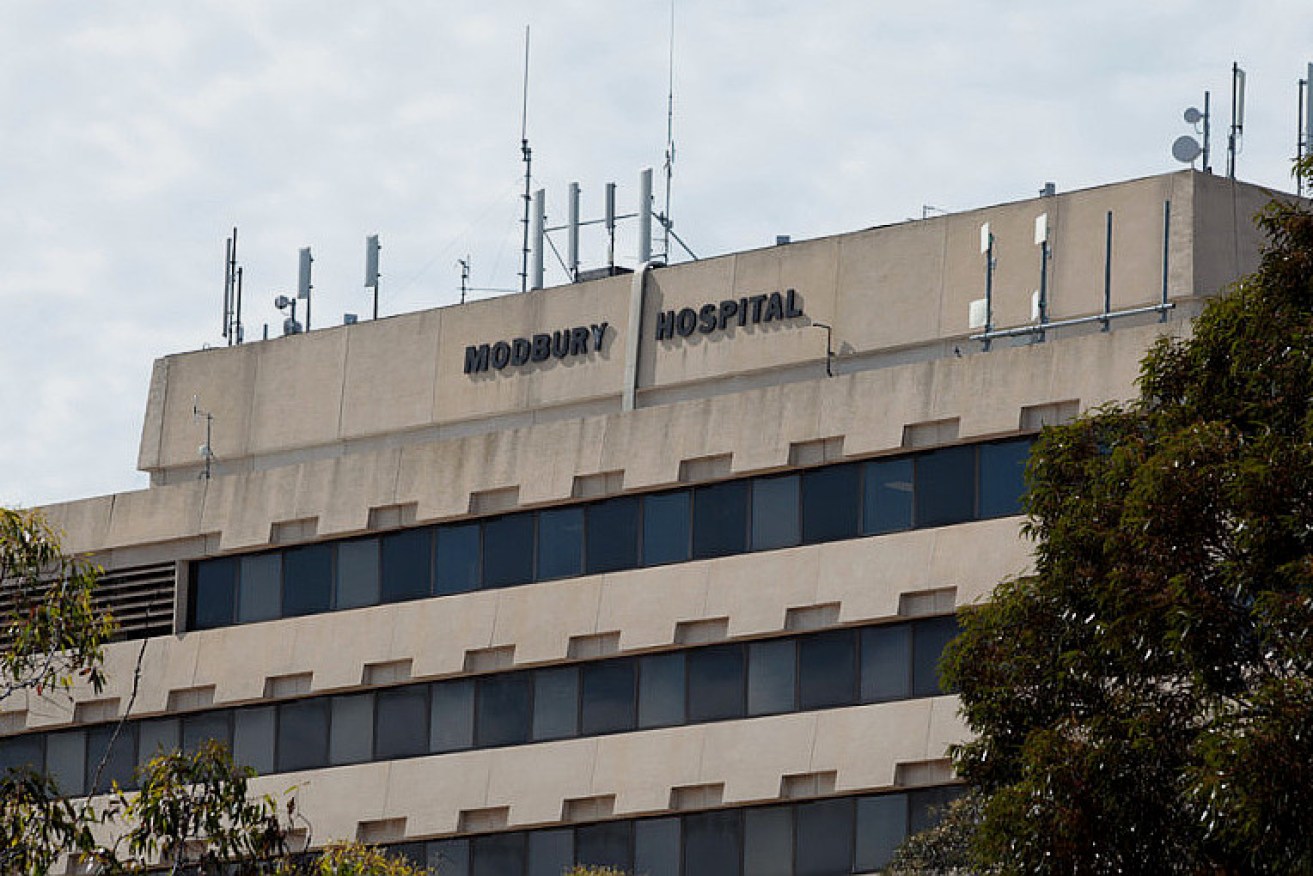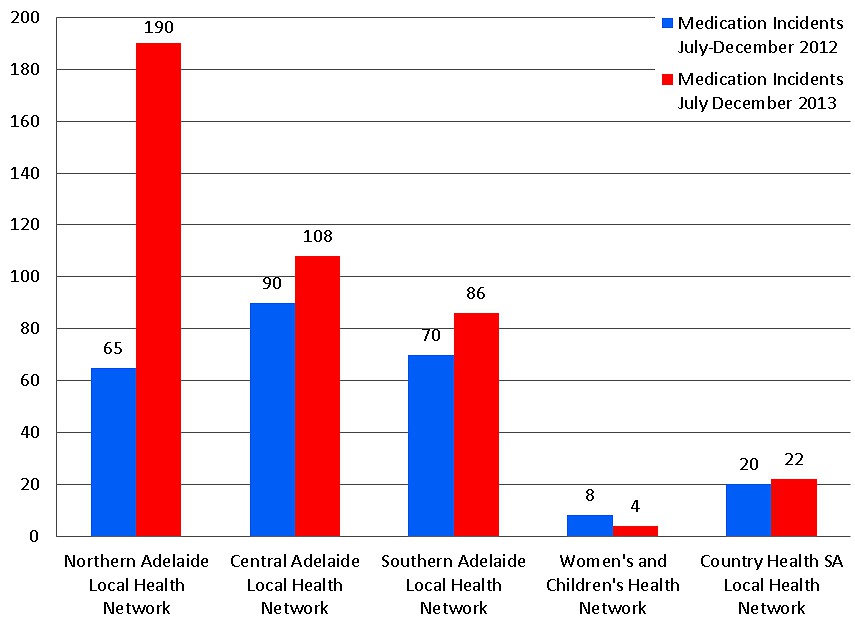Spike in mental health medication errors


In northern mental health services, medication errors jumped by nearly 200 per cent in a year.
Serious medication errors jumped by more than 60 per cent in the South Australian mental health system between 2012 and 2013.
An internal SA Health report, obtained by InDaily, reveals a 62 per cent spike in level 2 medication incidents – defined as those that cause a patient moderate to extreme harm.
SA Health told InDaily, however, that that figure has decreased by 13 per cent since 2013. The department would not provide InDaily with the specifics of that data.
Under SA Health’s Safety Assessment Code, a “moderate” incident means one which causes “permanent lessening of bodily functioning (sensory, motor, physiologic, or intellectual) unrelated to the natural course of the illness”, while an “extreme” incident means “death unrelated to the natural course of the illness/injury”.
There were 410 serious medication incidents in the second half of 2013, up from 253 in the second half of 2012*.
Most of the increase occurred within the Northern Adelaide Local Health Network (NALHN), where there was a nearly 200 per cent leap – from 65 incidents in the second half of 2012 to 190 incidents in in the second half of 2013.
The Lyell McEwin and Modbury hospitals are within the NALHN.

Medication incidents by level two classification July-December 2012 against July-December 2013. Click to enlarge.
More than half of the incidents around the state were categorised under “administration of medicine”, with many of the incidents in this category involving failures to administer prescribed medications.
Other errors included:
- Prescribing and ordering process – 67 incidents
- Other medication error – 54 incidents
- Supply/dispensing of medicines – 38 incidents
- Storage and accountability of medicines – 12 incidents
- Monitoring or following up of medicine – 11 incidents
- Advice and information transfer – 6 incidents
- Patient’s reaction to medication – 1 incident
Level 2 incidents must be investigated by executive staff within health services.
Director of Operations and Strategy at the Nursing and Midwifery Foundation (SA Branch) Rob Bonner said the figures were concerning, but required further investigation.
He said it was difficult to understand the implications of the data, because the report did not identify the specific location of patients when the errors occurred.
“We’re not clear whether these incidents related to clients who were living relatively independently,” Bonner said.
“The distribution of the error reports against Local Health Networks is also questionable given that some services were reallocated between Central Adelaide Local Health Network and Northern Adelaide Local Health Network over the relevant periods.
“Year to year comparisons are therefore requiring further interrogation, if they are to be used.”
The medication incident data was drawn from the Safety Learning System, which was introduced into the state’s health system in 2011.
SA Branch President of the Pharmaceutical Society of Australia Sue Edwards said that while all medication incidents are required to be reported on the Safety Learning System, “it often depends on the focus within the hospital about reporting”.
“If the reporting system becomes easier to use … then they’re more willing to report,” she said.
“Sometimes the things that can contribute … are workloads, communication issues, fatigue. There are multiple causes for medication incidents.”
Public Advocate John Brayley would not comment on the report, but said he would be raising it with SA Health.
SA Health told InDaily in a statement that “any medication incident is taken extremely seriously, and we consistently review staff education and support to ensure practices and protocols meet national standards”.
“Medicines are the most common treatment used in health care and compared to the number of medication doses administered, the number of medication incidents reported is very low with the vast majority associated with no patient harm.”
InDaily contacted the South Australian Salaried Medical Officers’ Association and the Australian Medical Association for comment.
*The report appears to have a typo which would mean that the data compares the final six months of 2013 with the full 2012-13 financial year, rather than the final six months of 2013 with the final six months of 2012. SA Health did not respond to InDaily’s request for clarification on the time period.




